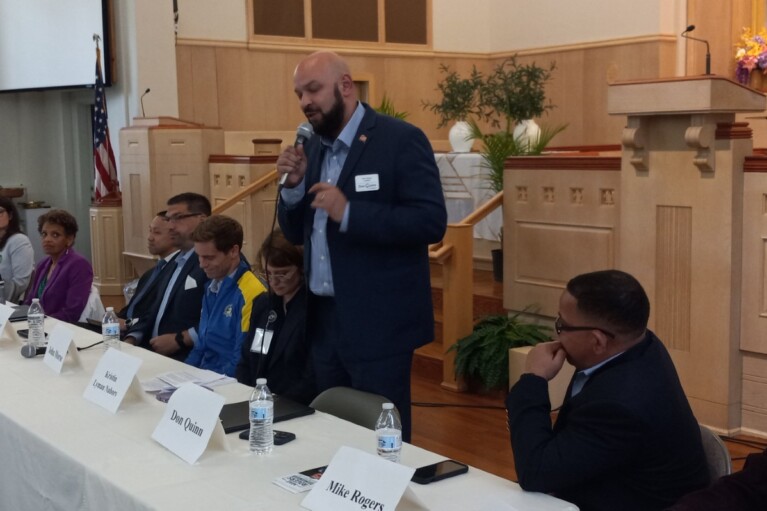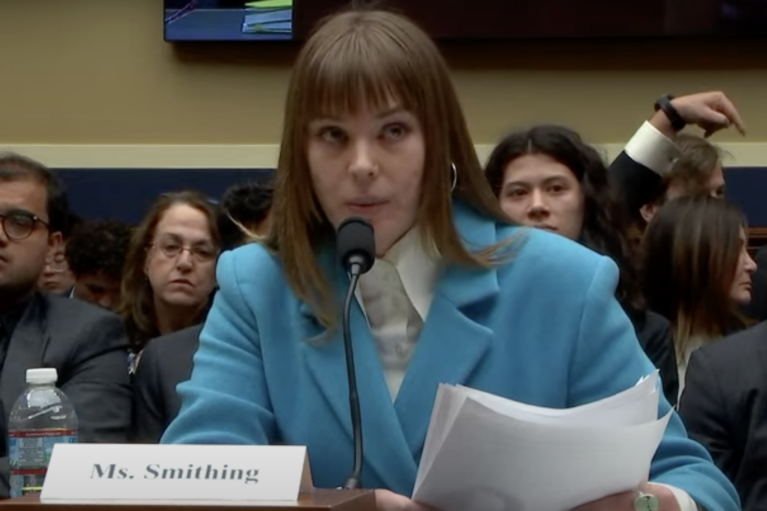During a legislative session marked by a House of Delegates censure over a lawmaker’s use of a racial slur, legislators should make a statement by removing a relic of racial tensions from the list of official state designations, an advocate told the Health and Government Operations Committee on Tuesday.
“Recent events in Virginia and in our own State House have reinforced the power of symbols and that words really matter,” Ginger Macomber, a Montgomery County resident who is married to a black man and has biracial children, said. “And we need to do more to correct these symbols.”
She was testifying in favor of House Bill 128 from Del. Kirill Reznik (D-Montgomery), which would repeal the official designation of “Maryland, My Maryland” and establish a commission to pick a new state tune.
“A new song will send a crucial, timely message to all of our residents that there’s no place in Maryland for racism today. I really feel this is the year when we can all do the right thing,” Macomber, representing the Woman’s Democratic Club of Montgomery County, said.
Lawmakers have introduced bills to repeal the song in 1974, 1980, 1984, 2001, 2002, 2009, 2016 and 2018. None passed both chambers.
“I am back once again with my quixotic attempt” Reznik told the committee on Tuesday, before running through the familiar talking points among advocates who have tried unsuccessfully to repeal the song’s designation.
The song is based on a poem written during the American Civil War by James Ryder Randall, who was born in Baltimore and was a Confederate sympathizer in Louisiana at the time he wrote the verses.
One of Randall’s friends was killed when federal troops came into Baltimore, sparking the song.
Among other things, the song refers to President Lincoln as a despot, the Union as “northern scum,” and “a few other very, very creative words,” Reznick said.
Reznick pointed out that the song was not adopted in 1861, when Randall wrote it. Nor was it adopted in 1865, when the Civil War ended. Or in the years that immediately followed.
The song was made a state symbol in 1939, during heightened racial tensions in the Jim Crow era, at the same time there was an effort to erect Confederate monuments, statues and state symbols around the country.
The bill designating “Maryland, My Maryland,” as the state song was passed by the Maryland General Assembly in 1935, but was vetoed by Gov. Harry W. Nice (R), who opposed the song’s “objectionable verses.” When Nice lost re-election in 1939, Gov. Herbert R. O’Conor (D) signed a second bill into law.
While the objectionable verses aren’t typically sung in public, Macomber said knowing the parts that are left out can still sting for many Marylanders.
“We are all too embarrassed to sing the entire song,” Reznik said. “If we are too embarrassed to actually sing the song, let’s get rid of it and sing a song we’re not embarrassed to sing.”
While hearings in past years have featured a number of speakers, only two people testified on this year’s measure.
A man who spoke against the bill said the song would be better understood if the lyrics were taught to children and young people.
“Just as our national anthem is the product of dangerous times in Maryland, so too, our state song reflects a troubled period,” he said. “A period that must not be forgotten.”
If the bill is passed this year, Reznik said he has a favorite alternate story he’d like the commission to consider. “My Home, My Maryland,” was written in 1976 and performed for the state’s bicentennial celebration by the U.S. Navy Glee Club.
Reznik lamented that another tune inspired by the state of Maryland is instead the anthem of a neighbor. Before the final lyrics, “Take Me Home Country Roads,” by John Denver was actually dreamed up while driving along Clopper Road in the old Germantown countryside.
“We don’t have a lot of songs in popular culture that we could appropriate,” Reznik said. “But we need to move forward.”




 Creative Commons Attribution
Creative Commons Attribution